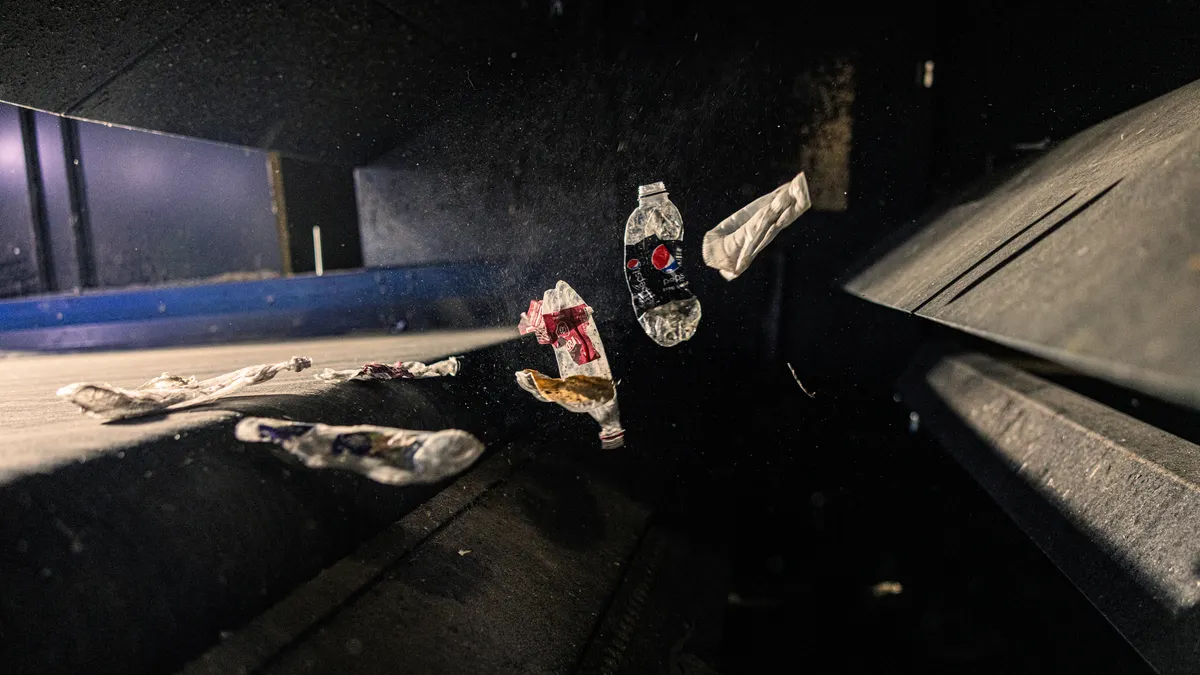Amp, known for its AI-powered sortation technology for recycling, is planning to expand one of its newer offerings: MSW processing.
Amp has been “quietly” ramping up its MSW diversion offerings for the last few years, namely through its Amp One sorting technology, said CEO Tim Stuart. Now, such MSW sorting offerings are a growing part of the company’s portfolio, he said during an interview at WasteExpo in May.
The Amp One system, designed to be co-located with landfills and transfer stations, can separate bagged trash into mixed recyclables, organics and residue streams. The ramp-up comes a few months after Amp announced it had raised $91 million in series D funding in an effort to accelerate Amp One system deployments.
“We’re very confident that we can get maybe a half a dozen of these facilities going over the next three or four years,” he said.
One such project is a partnership with the Southeastern Public Service Authority, which handles waste management for eight localities in the region of Portsmouth, Virginia. Amp was already operating a pilot facility there as a partnership with Recycling and Disposal Solutions.
Portsmouth officials announced earlier this month that SPSA would partner with Amp to offer the MSW sorting services on a broader regional scale. Stuart estimates the existing Amp One system was processing 30,000 to 40,000 tons of MSW a year, but the new agreement with SPSA would process the authority’s estimated 500,000 tons of MSW a year.
SPSA solicited proposals last year for disposal diversion solutions due to the closure of the nearby WIN Waste Innovations waste-to-energy plant. At the height of operations, the plant diverted more than 70% of the region’s trash from the landfill in nearby Suffolk, the Smithfield Times reported. At the time, the authority estimated that landfill would reach capacity by 2060 unless it pursued diversion options.
Amp says it will achieve about a 50% diversion rate for SPSA’s material. Amp will operate the facility at a certain per-ton processing rate, but SPSA will still own the material.
Amp is in talks to install custom Amp One systems in a handful of other “large municipalities” either through an RFP or pilot agreement, particularly in regions that have landfill constraints. Amp also plans to work with private haulers that don’t internalize their own material, he said.
“There’s a ton of municipalities that want more diversion. They want a longer life on their landfills, so this is meant to be good for the environment and good for the economics of things,” he said. “It’s an important component of the business, because by attacking MSW, it's just another way to recycle.”











